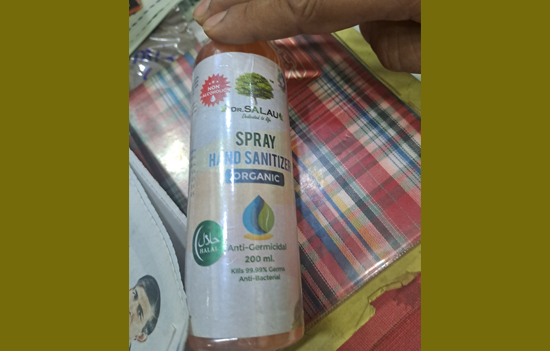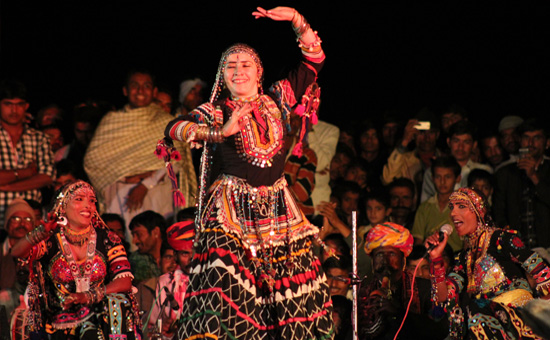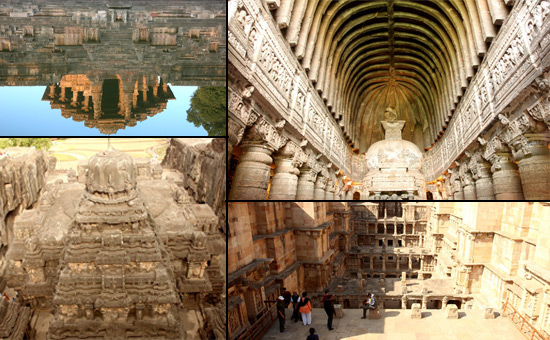- This FAQ tells what is Halal &
process of certification, which products are covered, deeper implications of having
a parallel system of certification and suggestions for government.
This Indian
Express report on Halal
reaching the Supreme Court (SC) caught my attention. Why did matter reach SC?
In November 2023 the “Office of the Commissioner, Food Safety and Drug Administration, Uttar
Pradesh, had issued a notification “prohibiting the manufacturing, storage, sale, and distribution of food products with halal certification within the State of Uttar Pradesh” with an exception provided for export products. Two parties who issue halal certificates namely Halal India and Jamiat Ulama-i-Hind Halal Trust approached SC. The notification was issued under the provision of the Food Safety and
Standards Act, 2006.
During the SC hearing Solicitor General Tushar Mehta said he was shocked to know that Halal certificates were issued, besides meat, for cement, water, wheat and chickpea flour.
Halal India Private Limited
(HIPL) and Jamiat Ulama-i-Hind Halal Trust (JUHT) are two key organizations
that provide certification in India. I visited their websites. HIPL is
particularly impressive.
This FAQ includes what is Halal/process and fees paid for certification, when is meat Halal, who can be a halal slaughter man, has GOI approved it, draft guidelines suggest sale of halal products in India is allowed, implications of a parallel system and benchmarking with Saudi.
1. What does Halal mean?
Halal is an Arabic word.
As per Halal Certification Scheme issued by HIPL, “The term used for products, services or systems which are considered lawful (Tayyab) or permissible under the Islamic Sharia’h (Islamic law/Islamic Legislation) that do not consist of or contain any part that is considered as unlawful (Haram) according to Islamic Sharia’h (IHAF).” Pg. 23
“Halal food means food and drink and/or their ingredients permitted under the Shariah law.”HIPL and 2 Pg. 25 “The term Haram refers to anything that is prohibited or forbidden in the Islamic law.” 2 Pg. 45 Najis, a term in Arabic language that means impurity or impure, dirty, polluted, contaminated, dirt, or filth.” 2 Pg. 46
Is India being administered through Constitution or Shariah?
2. When is Meat Halal?
An Indian Express report states, “This involves killing the livestock or poultry through a single cut to the jugular vein, carotid artery (which carries blood from the brain to the heart and vice
versa), and the windpipe with a sharp knife at the front of the neck. Animals
must be alive and healthy at the time of slaughter, and all blood must be
drained from the carcass. During the process, recitation of prayers, known as shahada, is also prescribed.”
3. What is Jhatka Meat
eaten by Hindus and Sikhs?
Jhatka requires stunning of animals prior to slaughter. A single blow to the back of the anima’s neck is done killing it.
Note that I am not against meat and promote vegetarianism. For
about 36 years, I ate chicken and mutton. A 1998 Kailash Yatra changed that
forever.
4. Who certifies edible
products within India?
“The Food Safety and Standard Authority of India’s (FSSAI) standard certification is the requirement for consumer edible products.”
A
reading of 2 Pg. 45 and 48 seems to suggest that the government has allowed marketing of halal products in India. Hope
GOI clarifies in SC.
5. Is Halal certification
for meat and meat products government approved?
Yes, for export Meat/ Meat Products to certain countries. India
does not have a National Regulation for Halal Certification says trade notice dated
17/1/23.
Trade Notice no 25/22-23 dated 17/1/2023 issued by Directorate General of Foreign Trade had draft guidelines for Halal certification. “Meat and meat products shall only be allowed to be exported as “Halal certified”, if produced, processed and/or packaged in a facility having a valid certification under the “India Conformity
Assessment Scheme (i-CAS)-Halal” of the Quality Council of India (QCI), issued by a Certification Body duly accredited by the National Accreditation Board for Certification Bodies (NABCB).” Read PDF
These were notified vide no 34/2024-25 dated 1/10/24. Read PDF
Thus, certification was only for meat export.
 Sign of a Halal certified product that I found in a local chemist shop.
Sign of a Halal certified product that I found in a local chemist shop.
Has NABCB approved halal certificates for products consumed in India? If not, why did the Central government remain quiet on Halal certification in the domestic market?
A parallel system for
certification through Halal is akin to Separate Electorates during British Rule
and being governed by Muslim Personal Laws/denial of equal inheritance to
Indian Muslim women.
If
India is to be governed by Shariah do we need a Constitution?
I must compliment GOI for in 2023, taking the lead in preparing quality standards for halal certification i.e. India
Conformity Assessment Scheme
I am unable to find a government notification that makes halal certification, for sale in the domestic market, mandatory. Please help if there in one.
 Kalbelia dance by Hungarian Muslim at Jaisalmer Desert Festival 2013.
Kalbelia dance by Hungarian Muslim at Jaisalmer Desert Festival 2013.
6. Is Halal only for
non-vegetarian food products?
Not 100% clear from notifications that I could find online.
If halal is implemented in India for vegetables, markets shall be split into halal and non-halal markets. It shall be extended to all products for e.g. cosmetics, pharmaceuticals, soft drinks, restaurants, hospitals (eventually doctors) tourism etc.
If halal certification is allowed for Indian markets, the government would sooner than later be pressurised to permit Islamic Banking, Halal Index on Bombay Stock Exchange etc. See problems in amending the Waqf Act!!
Demands could also include that
Advertising of products shall not contravene the principles of Shariah Law. 2 Pg 55
Proponents of halal certification argue
it attracts non-Muslim consumers because it promotes cleanliness etc. If this
argument holds, then are consumers to believe current certification standards ignore
cleanliness!!
Like the government introduced a Green colour code on edible products to indicate it is vegetarian, say a Red sticker could be fixed on packaging to imply it does not include pork.
A self-regulatory
mechanism is needed for the Indian market.
7. Who provides Halal
Certification in India?
Halal India and Jamiat
Ulama-i-Hind Halal Trust are permitted to provide halal certification by National
Accreditation Board for Certification Bodies (NABCB) says the above Express
report.
8. What are the fees for
Halal Certification?
As per the Express report
solicitor General Mehta told SC that certification agencies have made few lakh
crores providing halal certificates. These services are subject to GST. So from
the GST and Income-tax returns the actual fees received by HIPL and JUHT from certification
can be ascertained.
The fees payable for
certification are provided on the JUHT site. As on date of publishing I did not receive a reply from HIPL to
my email asking for rates.
1. New registration 3 yr cycle - Rs. 60,000 + Rs. 1,500 per product + GST. Renewal – Rs 50,000 plus Rs 1,000 per product.
2. New registration 1 year cycle - Rs 25,000+
Rs 500 per product + GST. Renewal - Rs 20,000
and Rs 500 per product.
3. Halal Logo Printing - Rs. 20,000 per
year (Total cost for any number of certified product) + GST.
4. Consignment certificate charges meat – Rs 800 per container/shipment.
5. Auditor
expense - Rs. 2000.00 (Per Man Day) + Travel Expense, lodging & Boarding at
actual
The procedure/costs
adversely affect the ease of doing business in India.
Size of the global halal
market cannot be a reason to increase cost for all Indian manufacturers. The
Indian market is huge.
Further, manufacturers would need to hire a Halal Islamic Affairs expert. Who is he? “A Muslim who has profound and comprehensive knowledge of the requirements of Halal in Islamic Sharia, his efficiency and scientific knowledge are established through academic certificates, courses, research and training courses in this field.” Source HIPL Certification Scheme Pg. 22
As per ‘India Conformity Assessment Scheme for Halal products’, “The procedures derived from Islamic Rules shall be adhered to in all stages of supply chain for Halal products, including receipt, preparation, packaging, labelling, transportation, distribution, storage, display and services.” 2 Pg. 49 “All non-Halal products should be completely separated from the Halal products throughout the supply chain in order to ensure their differentiation and non-mixing with each other and to prevent its contamination.” 2 Pg. 49
In India and globally this
is big business. HIPL is subject to corporate tax whilst JUHT is a charitable
trust. Does GOI track how certification
fees are used?
9. For how many years is
the Halal certificate valid?
“The certificate issued is valid for 3 years from the date of issue or a duration stipulated by HIPL, which is renewal.”
 There is more to India than the Taj.
There is more to India than the Taj.
10. How does Halal
Certification get implemented?
As per Assessment & Certification Scheme (SCH-2) issued by JUHT dated 31/10/23, “D3.5. The certification body shall appoint minimum of one staff in a permanent supervisory post who is competent and well trained in Halal requirements.”
This is like having a third party auditor in your factory which could
extend all through the supply chain. Few organizations would welcome this.
“As per Pg. 21 of 31/10/23 document. The Halal slaughter man must (excerpts):
a. Be a Muslim; who is of sound mind,
mature, and fully understands the Islamic procedure and conditions for
slaughtering of animals.
b. Be authorized and be under the
supervision of a certified Islamic organization.
c. Slaughter the animal according to
Islamic rite including recitation of Bismillah
Allahu-Akbar before slaughtering each animal.
d. The act of Halal slaughter should begin with an incision on the neck at some point just before the glottis (Adam's Apple) for animals with normal necks but after the glottis for animals with long necks such as chicken, geese, turkeys, ostriches, camels etc.”
This implies that only Muslims can get employed in such an activity. It denies employment and business opportunities to non-Muslim butchers. Is this a restrictive employment practice? It is similar to the Waqf Act provision that only a Muslim can be appointed as a member of the Waqf Board.
11. Is opposing Halal
certification beyond export of meat/meat products against secularism and rights
to minorities?
The Indian Constitution does not define
the European concepts of secularism and minority. Read Why secularism
is not an Indian concept and Meaning of
Secularism and Why India must
have no place for a religious minority and Rights of
Minorities in India
12. What is deeper impact
of a parallel certifying system like Halal?
Indians must realize, like Dr Ambedkar
earlier did, that Muslim demands are never ending.
In 1941 Dr Ambedkar wrote in Thoughts on Pakistan, “After taking into account what the Muslims demanded at the Round Table Conference one would have thought that the limit of Muslim demands was reached and that 1932 was a final settlement. But it appears that even with this the Muslims are not satisfied. A further list of new demands for safeguarding the Muslim position seems to be ready.” (Pg. 260)
How does the Muslim mind work?
Dr Ambedkar wrote that the Muslim mind is influenced by, “Among
the tenets of Islam is one which says that in a country which is not under
Muslim rule wherever there is conflict between Muslim law and the law of the
land the former must prevail over the latter and a Muslim will be justified in
defying the law of the land. (Pg. 291)
A back
to back reading of Dr B R Ambedkar’s 1941 book is important to
understand Islam and the Muslim mind. Also read Anatomy
of a Flawed Inheritance by
former foreign secretary J N Dixit.
Gandhiji
spearheaded the Khilafat Movement
(1919) but failed to realize that the Pan-Islamic idea cut at the very root of
Indian nationality.
Countries like USA, UK can promote halal because none of them was divided on the basis of religion.
Read Who is
responsible for Partition
13. What happens in Muslim
majority Saudi Arabia i.e. ruled by Monarchy?
The Saudi Food and
Drug Authority site states, “Currently the Halal slaughter certificate Certification is mandatory for the shipments of meat, poultry and their products coming to Kingdom of Saudi Arabia and issued by exporters.”
According to this WTO Centre report, in Saudi, “enterprises must get Halal certification from the SFDA’s approved and authorised list of certification bodies. Halal certification attests that a product is manufactured in full compliance with the precepts of Islamic Law.”
Muslim majority, monarchy run UAE states ‘Halal National Mark’ issued to 6,581 Food and 1004 Cosmetic and Personal Care Products.
Why
is India producing buffalo meat for export and contributing to global warming
is a different subject.
GOI should make it
mandatory for all restaurants to state whether meat/meat products served are halal
or jhatka.
If allowed by SC, Jains and Vaishnavs might also demand a separate system of certification.
Utmost care was taken in presenting
data. Errors if any are unintentional and without malafide intent. I am happy
to stand corrected.
References
and also read
1. What are halal
certified products and the controversy around it?
2. Draft Guidelines 17/1/23 issued by
the Government of India.
3. Why production
of Beef is bad for the environment?
4. Who was
responsible for Partition?
5. Commerce
Ministry notified guidelines for Halal certification 2023
6. Halal Certification is creating a Muslim only economy